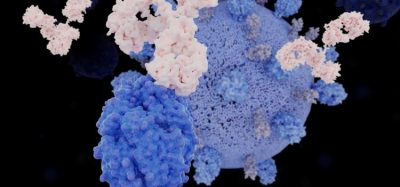NICE recommends first oral S1P receptor modulator for ulcerative colitis
Posted: 7 October 2022 | Catherine Eckford (European Pharmaceutical Review) | No comments yet
NICE has recommended the drug Zeposia® (ozanimod) for moderate to severe cases of ulcerative colitis.


The National Institute of Health and Care Excellence (NICE) has recommended Bristol Myers Squibb’s Zeposia® (ozanimod) for use in England and Wales to treat moderate to severe ulcerative colitis (UC) cases in adults who are intolerant of, or unresponsive to biologics or conventional therapies.
UC is an Inflammatory Bowel Disease (IBD) that makes immune system attack the gastrointestinal (GI) tract. Symptoms include swelling and inflammation of the rectum and colon. Demographic data reports that the disease mainly affects individuals between 15 to 25 years old. These symptoms can flare-up several times per year, causing patients to need the bathroom multiple times a day, become anaemic and lose their appetite, resulting in unintended weight loss.
One in 227 of the UK population have UC. Half of cases are moderate to severe, so NICE’s recommendation has garnered positive welcome from healthcare professionals and patients around the country.
A Phase III trial (NCT02435992) titled True North, evaluated the efficacy of Zeposia® against placebo to help participants reach either clinical remission or endoscopic improvement and mucosal healing.
Zeposia® reduces the capacity of lymphocytes to emerge from lymph nodes, reducing the number of lymphocytes (immune cells created in blood marrow) circulating in the blood.
Ozanimod is a sphingosine 1-phosphate (S1P) receptor modulator that binds strongly to S1P receptors 1 and 5. The drug is estimated to work by reducing lymphocyte migration into the central nervous system and intestine, thus improving a patient’s condition.
The trial demonstrated statistically significant results for clinical remission with ozanimod (n=429) compared to placebo (n=216) at induction at Week 10 (18.4 percent versus 6 percent; p-value<0.001 [95 percent confidence interval (CI), 7.5 – 17.2]).
The primary aim of the trial was to identify the percentage of patients in remission from the disease. In the maintenance phase, at Week 52, ozanimod (n=230) also demonstrated statistical significance in clinical remission versus placebo (n=227) (37.0% vs 18.5 percent; p<0.001 [95 percent CI, 10.8 – 26.4]).
Clinical remission with ozanimod compared to placebo at Week 10 was 18.4 percent versus 6 percent. By Week 52, ozanimod also offered clinical remission versus placebo (37.0 percent vs 18.5 percent).
In the induction period, the most common treatment-emergent adverse events (TEAEs) for UC patients who received ozanimod were anaemia (4.2 percent vs 5.6 percent), nasopharyngitis (3.5 percent vs 1.4 percent) and headache (3.3 percent vs 1.9 percent). In the maintenance phase, the most common TEAEs were a rise of alanine aminotransferase (4.8 percent vs 0.4 percent) and headache (3.5 percent vs 0.4 percent). Infections were more common with ozanimod than with placebo during the maintenance phase of the trial (23 percent vs 11.9 percent).
Related topics
Biopharmaceuticals, Clinical Trials, Drug Safety, Research & Development (R&D), Therapeutics
Related organisations
Bristol-Myers Squibb (BMS), National Institute for Health and Care Excellence









